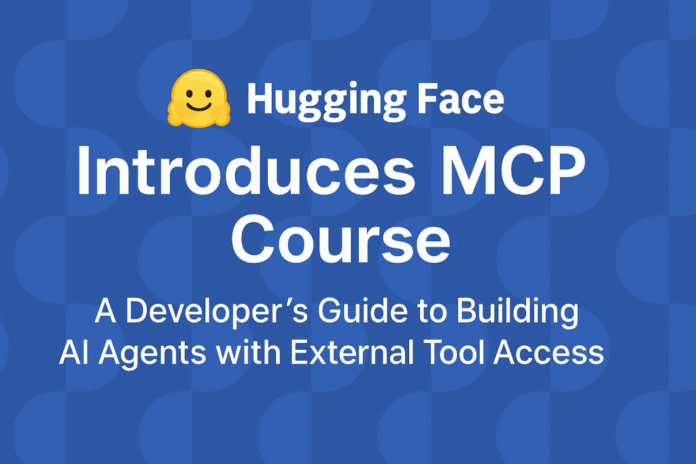Hugging Face has released a , an open approach developed by Anthropic to facilitate the integration of large language models (LLMs) with external data sources and tools. This course aims to provide developers and AI practitioners with the knowledge and skills to leverage MCP for building more context-aware and capable AI applications.
Understanding the Model Context Protocol (MCP)
The Model Context Protocol (MCP) is designed to address the complexities involved in connecting AI models to diverse external systems. Traditionally, integrating AI models with various data sources required custom solutions for each connection, leading to inefficiencies and scalability issues. MCP introduces a standardized protocol that enables AI models to interact with external resources through a unified interface, simplifying the integration process and enhancing interoperability.
By adopting MCP, developers can build AI applications that are more adaptable and capable of accessing real-time information from multiple sources, thereby improving the relevance and accuracy of AI-driven insights and actions.
Overview of the Hugging Face MCP Course
The is structured to guide learners from foundational concepts to practical applications of MCP. The curriculum is divided into several units, each focusing on different aspects of MCP:
Unit 0: Onboarding
This introductory unit provides an overview of the course objectives and outlines the prerequisites for participants. It sets the stage for the subsequent units by establishing the necessary context and tools required for the course.
Unit 1: MCP Fundamentals
In this unit, learners delve into the core principles of MCP, exploring its architecture, key components, and the problems it aims to solve. The unit emphasizes understanding how MCP facilitates seamless integration between AI models and external systems.
Unit 2: Building an MCP Application
This hands-on unit guides participants through the process of developing a simple MCP application. By applying the concepts learned, learners gain practical experience in implementing MCP in real-world scenarios.
Unit 3: Advanced MCP Development
Focusing on more complex aspects, this unit covers the deployment of MCP applications using the Hugging Face ecosystem and partner services. It also explores advanced topics and best practices for MCP implementation.
Bonus Units
Additional content is provided to enhance learning, including collaborations with Hugging Face partners and exploration of the latest MCP tools and implementations.
Upon completion of the course, participants have the opportunity to earn a certification, validating their proficiency in MCP.
Getting Started with MCP
To successfully engage with the MCP course, participants should have a foundational understanding of AI and LLM concepts, familiarity with software development principles, and experience with at least one programming language, such as Python or TypeScript. The course provides resources to assist learners in meeting these prerequisites if needed.
All course materials are accessible online, requiring only a computer with an internet connection and a Hugging Face account. This accessibility ensures that a wide range of learners can participate and benefit from the course.
The Significance of Learning MCP
As AI continues to evolve, the ability to integrate models with various data sources and tools becomes increasingly critical. MCP offers a standardized approach to this integration, promoting efficiency and scalability. By mastering MCP, developers can create AI applications that are more responsive, context-aware, and capable of delivering enhanced value across different domains.
The Hugging Face MCP Course provides a structured pathway to acquiring this expertise, empowering learners to contribute effectively to the development of advanced AI systems.
Check out the All credit for this research goes to the researchers of this project. Also, feel free to follow us on and don’t forget to join our .


